Today’s readings
We have a pretty late Lent this year. Ash Wednesday is not until March 1st. What is really nice about that is that it gives us a little more ordinary time in the winter, which we often don’t get. Sometimes we rush from Christmas to Ash Wednesday and barely get to breathe. So in this little Ordinary Time break, we get some nice things in the Scriptures, specifically the study of what the Christian life should be. I think today’s Scriptures give us a look at the virtue of humility.
Humility is the virtue that reminds us that God is God and we are not. That might seem pretty obvious, but I think if we’re honest, we’d all have to admit that we have trouble with humility from time to time. The deadly sin that is in opposition to humility is pride, and pride is perhaps the most common sin, and really the most serious sin. We might think of all kinds of other sins that seem worse, but pride completely destroys our relationship with God because it convinces us that we don’t need God. That was the sin of the Israelites building the golden calf in the desert, it was the sin of the Pharisees arguing with Jesus, it was even the sin of Lucifer in the first place, and it is the sin of all of us, at some level, at some times in our lives.
Pride is pretty easy to recognize when it’s blatant: it is the person boasting of their abilities or their possessions or their accomplishments or status, claiming all the glory for themselves, putting others down in the process, and never even mentioning God. So we might look at that and say, well, Father Pat, I’m not prideful. But hold on just a second. That’s not the only face of pride. Another face of pride realizes that we are in a sorry state, but doesn’t want to bother God with our problems so we try to figure them out ourselves. It never works, and so we continue to feel miserable, but we also offend God in the process. A similar face of pride looks to accomplish something important, maybe even something holy. But we go about it without immersing it in prayer and forge ahead with our own plans. Again, we often fail at those times, and we certainly offend God.
The only antidote to pride is the virtue of humility. It is the prayer that admits that God is God and we are not. It is the way of living that accepts the difficulties and challenges of life as an opportunity to let God work in us. It is the state of being that admits that everything we are and everything we have is a gift from God, and spurs us to profound and reverential gratitude for the outpouring of grace that gets us through every day and brings us to deeper friendship with God.
So today we hear the very familiar Beatitudes. I know that when I was learning about the Beatitudes as a child, they were held up as some kind of Christian answer to the Ten Commandments. I don’t think that’s particularly valid. One might say, however, that the Ten Commandments are a basic rule of life and the Beatitudes take us still deeper.
I also remember thinking, when I was learning about the Beatitudes, that these seemed like kind of a weak way to live life. I mean, who can live up to all these things anyway? And who would want to? Do you know anyone who would actively seek to be poor, meek or mourning? And who wants to be a peacemaker? Those people have more than their share of grief.
So I think when we hear the Beatitudes today, we need to hear them a little differently. We need to hear them as consolation and encouragement on the journey. Because at some point or another, we will all be called upon to be poor, meek and mourning. That’s just life. And the disciple has to be a peacemaker and seek righteousness. We will have grief in this lifetime – Jesus tells us that in another place. So what Jesus is saying here, is that those of us undergoing these sorts of trials and still seeking to be righteous people through our sufferings are blessed. And the Greek word that we translate as “blessed” here is makarios, a word that could also be translated as “happy.” Happy are those who suffer for the Kingdom.
So does anyone really believe that? I mean, it’s quite a leap of faith to engage our sufferings and still be sane, let alone happy. The ability to see these Beatitudes as true blessings seems like too much to ask. And yet, that’s what we disciples are being asked to do.
I think a good part of the reason why this kind of thinking is hard for us, is that it’s completely countercultural. Our society wants us to be happy, pain-free and without a concern in the world. That’s the message we get from commercials that sell us the latest in drugs to combat everything from indigestion to arthritis pain – complete with a horrifying list of side-effects. That’s the message we get from the self-help books out there and the late-night infomercials promising that we can get rich quick, rid our homes of every kind of stain or vermin, or lose all the weight you want in just minutes a day. That’s the message we get from Oprah and Dr. Phil and their ilk, who encourage us never to be second to anyone and to do everything possible to put ourselves first. If this is the kind of message we get every time we turn on a television, or surf the internet, who on earth would want to be poor in spirit? Who would want to be meek? Who would even think to hunger and thirst for righteousness?
Now this is an important point: Pride is just the way we live, culturally speaking. We are always right, and if we’re not, we certainly have a right to be wrong. We can accomplish anything we set out to do, and if we fail, it was someone else’s fault. We don’t need anyone’s help to live our lives, but when we’re in need, it’s because everyone has abandoned us. We are culturally conditioned to be deeply prideful people, and it is absolutely ruining our spiritual lives.
Jesus is the One who had the most right of anyone to be prideful. He is God, for heaven’s sake – I mean, he really could do anything he wanted without anyone’s help. But he chose to abandon that way of thinking so that we could learn how to live more perfect lives. He abandoned his pride and in humility took on the worst kind of death and the deepest of humiliation.
So what if we started to think the way Jesus does? What would happen if we suddenly decided it wasn’t all about us? What would happen if we decided that the utmost priority in life was not merely taking care of ourselves, but instead taking care of others, trusting that in that way, everyone – including ourselves – would be taken care of? What would happen if we were not completely consumed with ourselves and so did not miss the opportunity to come to know others and grow closer to our Lord? That would indeed be a day of great rejoicing and gladness, I can assure you that.
And I’m not saying you shouldn’t take care of yourself. We all need to do that to some extent, and maybe sometimes we don’t do that as well as we should – I’ll even speak for myself on that one. But when we consume ourselves with ourselves, nothing good can come from it. Maybe this is a kind of balance that we could spend these weeks leading up to Lent striving to achieve.
Today’s Liturgy of the Word calls us to a kind of humility that remembers that God is God and we are not. It is the only real antidote to the destructive, deadly sin of pride that consumes our society and us on a daily basis. This isn’t some kind of false humility that says we are good for nothing, because God never made anything that was good for nothing. Instead, it is a humility that reminds us that what is best in us is what God has given us. As St. Paul says today, “God chose the foolish of the world to shame the wise, and God chose the weak of the world to shame the strong, and God chose the lowly and despised of the world, those who count for nothing, to reduce to nothing those who are something, so that no human being might boast before God.” If we would remember that everything that we have and everything we are is a gift to us, if we would remember that it is up to us to care for one another, if we would remember that being consumed with ourselves only makes us feel worse than ever, if we would but humble ourselves and let God give us everything that we really need, we would never be in want. Blessed, happy are we; rejoice and be glad!
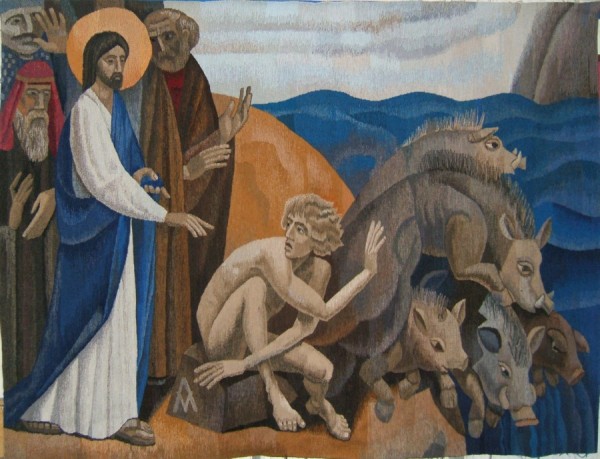
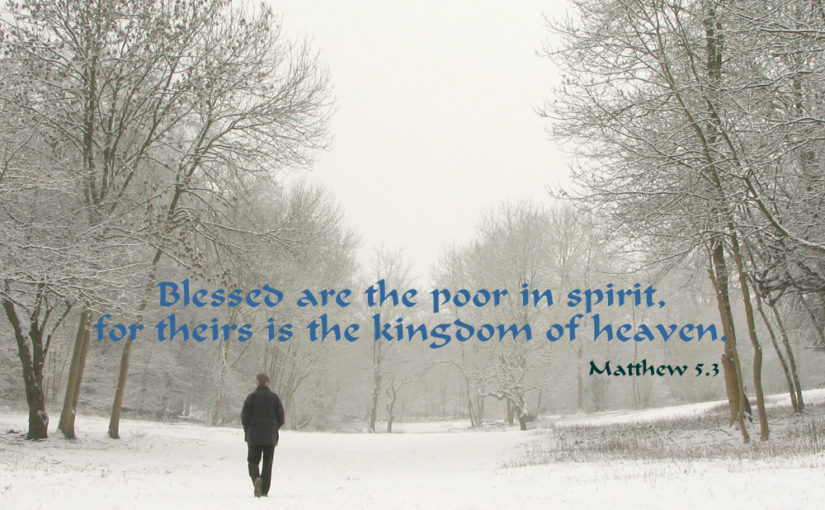
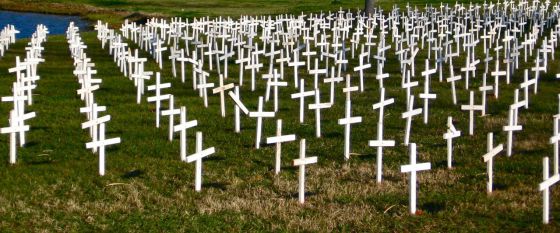
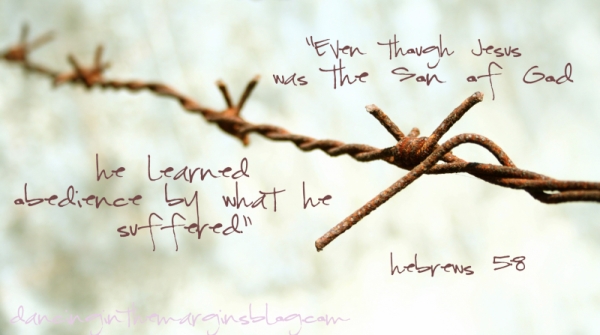
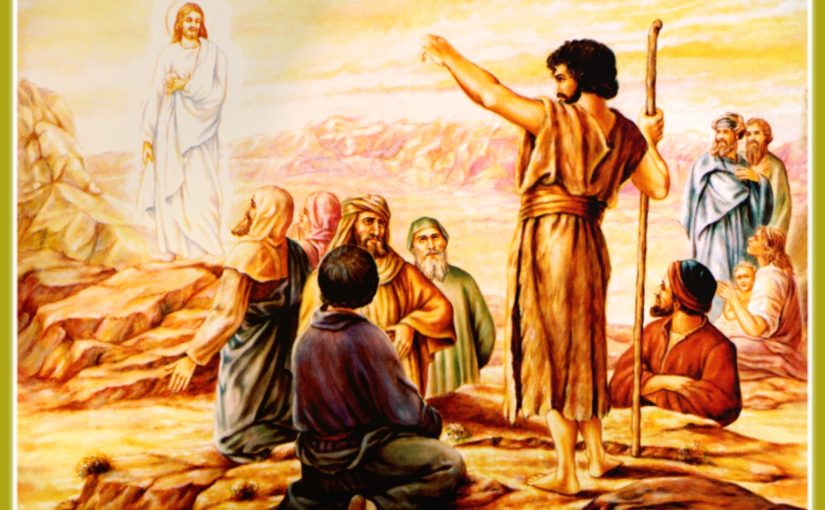
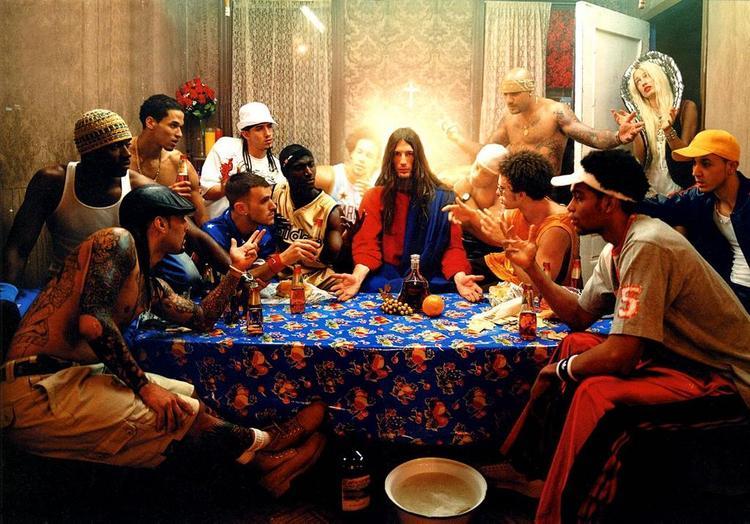
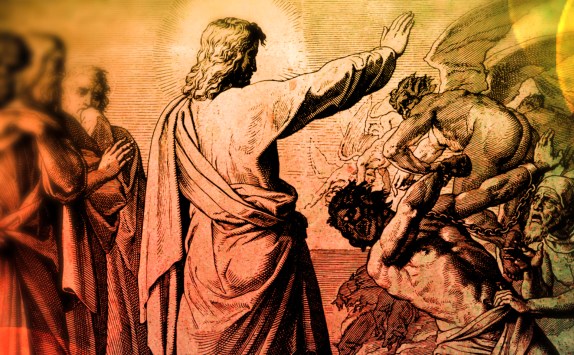


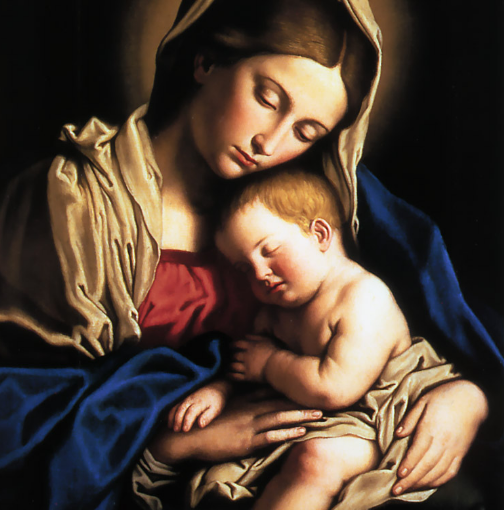
You must be logged in to post a comment.